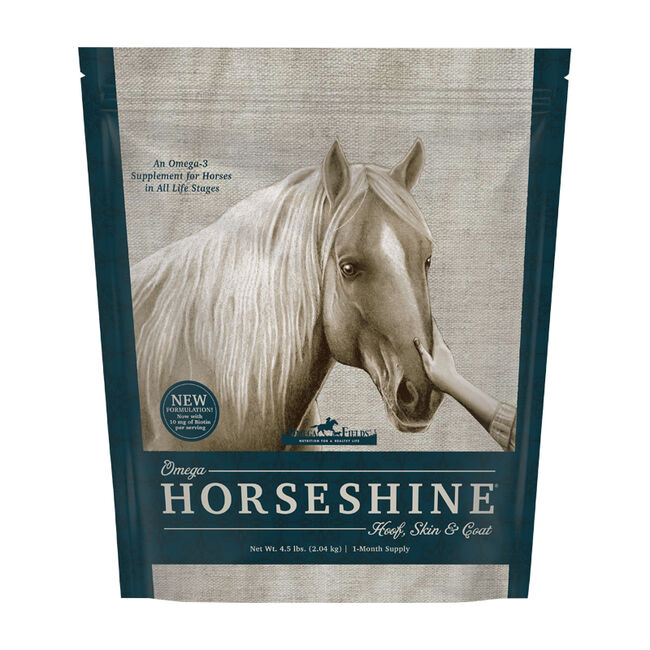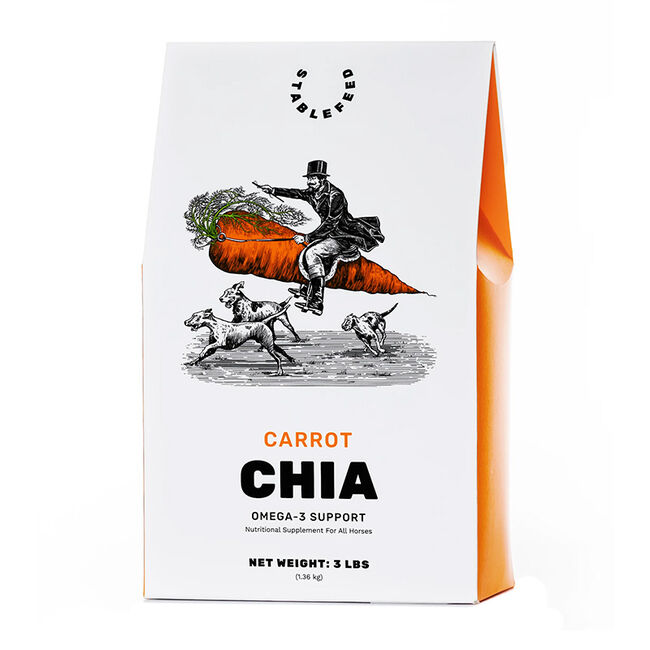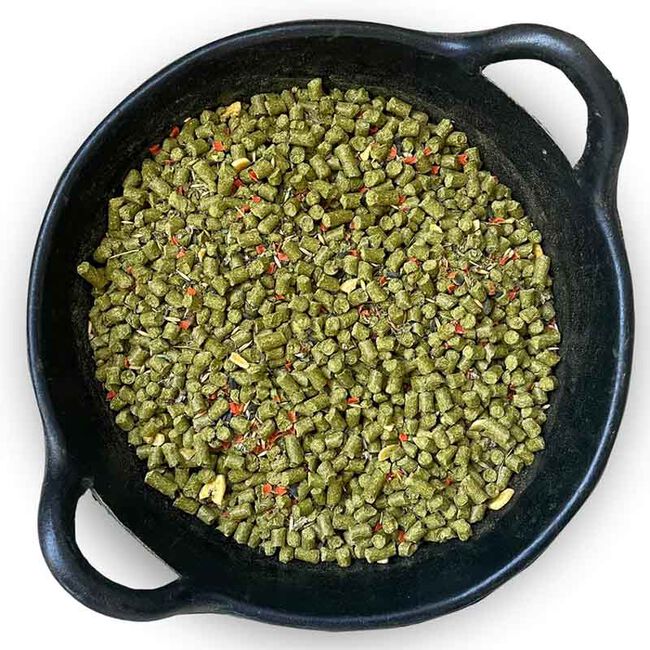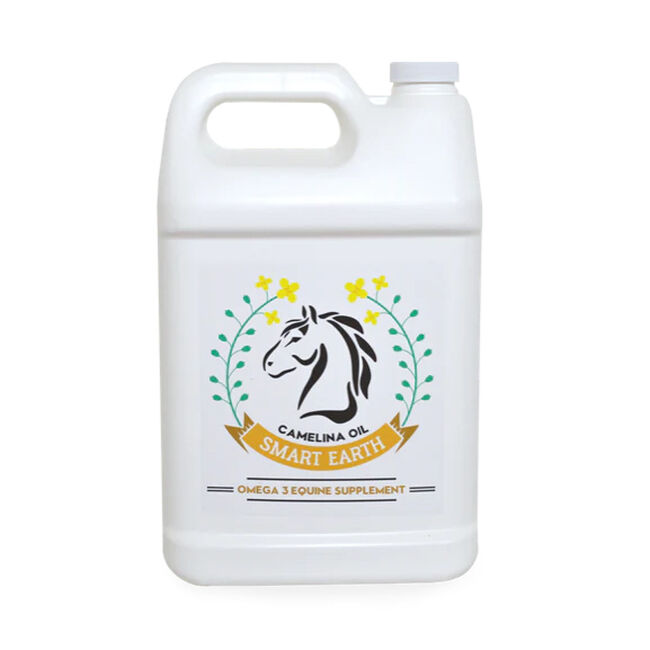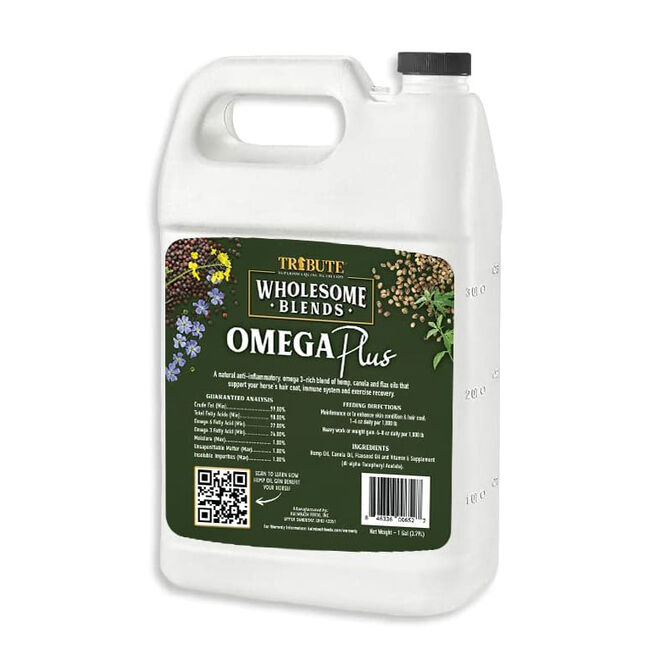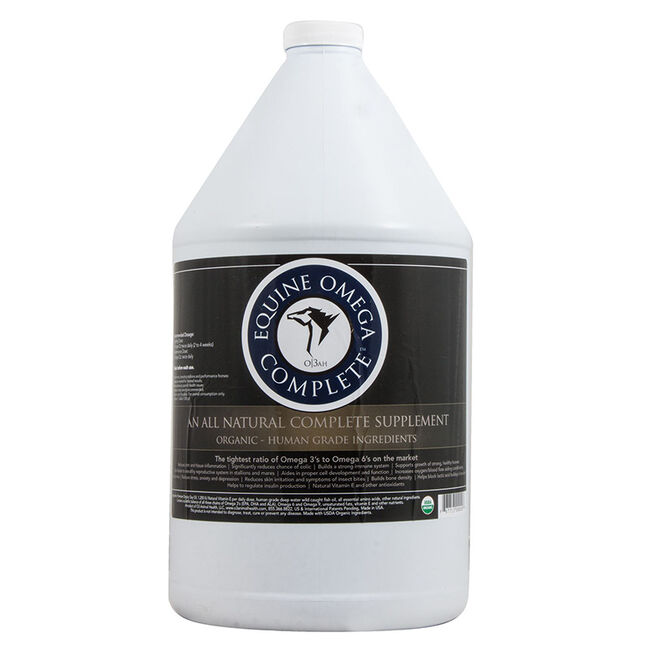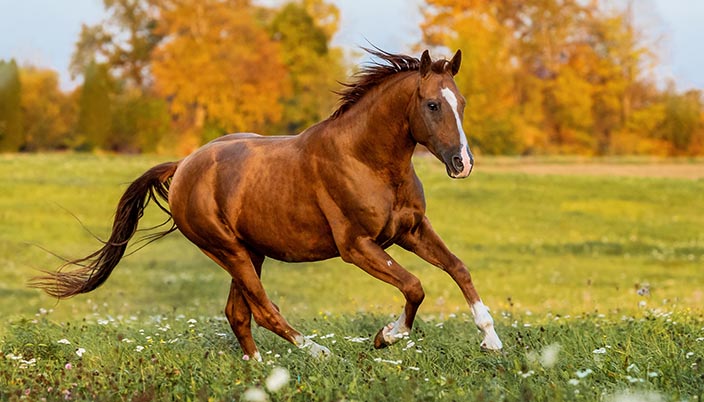
When it comes to feeding our horses and devising a nutritional plan for them, optimizing their overall health and wellness is one of our top priorities. In recent years, supplementing with omega-3 fatty acids has become increasingly mainstream — and for a good reason! They have a plethora of equine health benefits, making them an important nutritional component for horses of any age. Horse feed high in omega-3 fatty acids or omega-3 supplementation is increasingly suggested by nutritionists and veterinarians for foals, broodmares, performance horses, and senior horses.
What are the benefits of feeding Omega-3 Fatty Acids?
There are a number of benefits to supplementing your horse’s diet with omega-3 fatty acids — both inside and out. Superficially, these essential fatty acids give your horse a gorgeous coat and a beautiful, glossy shine. The fats prevent moisture loss in the skin, which can help to eliminate dry skin and can help prevent certain skin conditions from arising, including sweet itch (learn more on our blog post, Managing the Misery of Sweet Itch).
However, the benefits of feeding omega-3s are more than skin-deep. “Once ingested, fatty acids are metabolized by the body to produce prostaglandins, which are a group of hormone-like lipid compounds that affect important bodily functions,” Katy Raynor, DVM, New England Equine Medical and Surgical Center, explains. “They play a large role in inflammation.” Supplementing with omega-3 fatty acids has been shown to decrease inflammation, helping your horse be more comfortable both in their day-to-day lives and when they are being ridden. Many equestrians report healthier hooves and additional mane and tail growth when they supplement their horses with omegas-3’s, as well as strengthened immune systems, increased fertility, and weight management.
How can I incorporate Omega-3 Fatty Acids into my horse’s diet?
To put it as simply as possible, omega-3 fatty acids are a polyunsaturated fat that a horse cannot produce on their own; horses must ingest them to receive a balanced diet. As your horse breaks down the fatty acids, they are converted into eicosapentaenoic acid (EPA) and docosahexaenoic acid (DHA). EPA and DHA are the building blocks of “eicosanoids” — which affect many systems throughout the body.
While omega-3 fatty acids are found in dark, leafy plants, which are traditionally the cornerstone of the equine diet, omega-6 fatty acids are found in the oil of cereal grains and seeds. This means that as horses eat less forage and more grain, they are inherently consuming more omega-6 fatty acids. Raynor explains, “Performance horses and those that are hard keepers tend to need more grain (which is naturally higher in omega-6 fatty acids) and less forage (which is higher in omega-3 fatty acids). This is important because while horses need both sources of omega fatty acids, a diet with a higher omega-3 to omega-6 ratio is more desirable for their overall health.” Too much omega-6 fatty acid in your horse’s diet can cause inflammation. Equine nutritionists recommend that you feed higher amounts of omega-3 fatty acids in order to counteract the effects of omega-6 fatty acids.
“If your horse was turned out with access to all the natural grasses and plants of your region year-round, they would naturally receive the omega-3 fatty acids they need. Unfortunately, this isn’t usually the case, and supplementation can significantly improve your horse’s overall health,” Dr. Raynor tells us. Fortunately, there are a wide variety of products on the market that can help to increase your horse’s daily intake of omega-3 fatty acids. Look for a product that fulfills your horse’s health needs, while fitting within your budget. There are a number of different active ingredients that provide natural sources of omega-3 fatty acids, including the following:
Stabilized Flax Seed
Perhaps one of the most common ways to supplement omega-3 fatty acids, flax seeds are highly palatable for horses, making them easy to feed, even if your horse receives a limited amount of grain or their ration balancer. Omega Fields Omega Horseshine and Uckele CocoSoya Granular are two popular ways to integrate stabilized flax seed into your horse’s diet. All stabilized flax seed is processed to prevent the seeds from becoming rancid.
It is not recommended that you feed whole flax seeds to horses. Although not detrimental to your horse’s health, the horse’s digestive tract is unable to break down the hull of the seed, which prevents them from digesting any of the essential fatty acids (EFAs).
Chia Seeds
Chia seeds are one of Mother Nature’s most nutrient-dense foods. They provide high quality, digestible fat, 19 of the 20 amino acids, a wide spectrum of vitamins and minerals (including boron), digestive support with their high mucosal property, and are easy to digest. Additionally, chia seeds have a high content of alpha-linolenic (ALA) fatty acids, with nearly 60% of the fats in chia seeds being from these omega-3 fatty acids.
Mary Hartman, the CEO and Founder of StableFeed has integrated chia into her supplements and feed for horses. “Chia seeds, when consumed on a regular basis, support healthy bone growth and cause the body to increase the production of circulating immune-boosting cells,” she explains. Chia seeds are available to be fed to horses in their virgin form, such as the Equine Chia, as well as combined with additional holistic ingredients in biscuit form, like the StableFeed Blueberry Chia – Omega-3 Support and the StableFeed Carrot Chia – Omega-3 Support.
Sainfoin
An ancient forage product, sainfoin is also referred to as “holy hay.” This leafy legume is high in omega-3 fatty acids and offers antimicrobial, anti-parasitic, anti-oxidant, and anti-inflammatory properties. This non-GMO, organic forage is being reintroduced to the American markets, with compelling studies regarding its overall health benefits. The forage is available in pelleted form, StableFeed Sainfoin Forage Pellet, as well as a main ingredient of the StableFeed Seasons Feed – Spring/Summer Blend.
Camelina Oil
Camelina oil, sometimes referred to as false flax oil, is the pressed seed oil of the camelina sativa or false flax plant. Originally used by the ancient Romans for its health benefits, it has recently entered the equine supplement market, due largely in part to its high omega-3 fatty acid profile. It also contains high levels of alpha- and gamma-tocopherol (natural vitamin E), which is an important vitamin for many horses in the Northeast due to the short grazing season. Read more about the need for vitamin E on our blog posts, Demystifying Vitamin E Supplements and The Inside Scoop on Vitamin E.
Camelina oil tends to have an earthy smell that many horses find irresistible. The oil is shelf stable, making it easy to feed and leave in your tack room. Smart Earth Camelina Oil is 100% pure non-GMO camelina oil that many of our customers have had success with.
Hemp Oil
Hemp oil is naturally rich in omega-3 fatty acids as well as proteins, which can make it a popular supplement for equestrians looking to increase their horse’s body condition and/or build muscle. Hemp oil contains the omega-3 fatty acid known as stearidonic acid (SDA) which has had many positive findings in human health studies, although more research is needed to know if the health benefits translate to equine health as well. Tribute Wholesome Blends Omega Plus contains high levels of hemp oil in its formulation.
Fish Oil
Commonly seen in human omega-3 supplements, fish oil can also be fed to horses to increase their intake of omega-3s. It has been prized for many years for its close ratio of omega-3 to omega-6, while also being very shelf stable. Many equine companies mix fish oil with other carrier oils in order to make the product palatable for horses. O3 Animal Health Equine Omega Complete utilizes fish oil as one of the main sources of EFAs. It is important to note that some equine nutritionists suggest that omega-3 fatty acids derived from fish are not ideal for horses, since fish is not a component of the natural equine diet.
Overall, supplementing your horse with omega-3 fatty acids is a simple and economical way to promote whole-body wellness. It is easy to understand why so many equine nutritionists and veterinarians suggest that horse owners feed supplements and grains rich in omega-3 fatty acids, in order to assure a well-rounded diet for horses of all ages, breeds, and activity levels.

